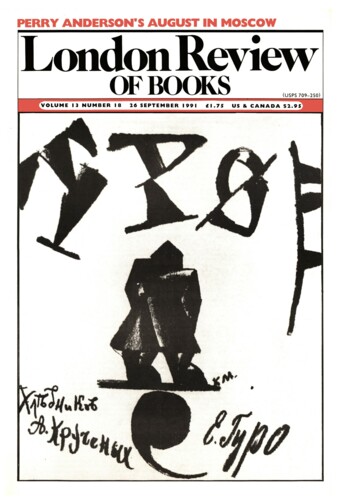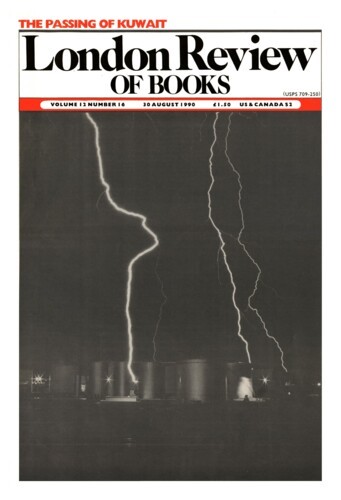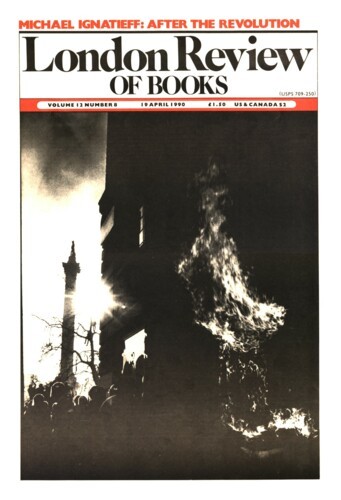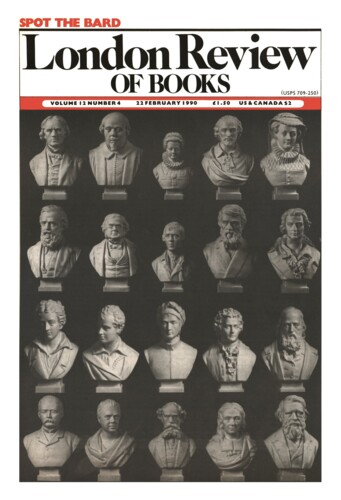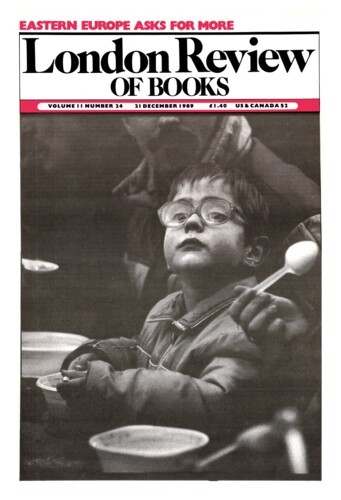Communism’s Man of Letters
J.P. Stern, 26 September 1991
He was born György Bernát Löwinger on 13 April 1885 into one of the richest Budapest families. His father, the son of a quilt-maker from southern Hungary, left school at 13, was made branch manager of the Anglo-Austrian Bank at 24, and changed the family name to Lukács when the boy was five; in 1901 he bought the title of minor nobility, and in 1906 was appointed director of one of the largest credit institutions in the Austro-Hungarian monarchy. Georg dropped the ‘gentry-bureaucratic’ designation of von only on his conversion to Communism in 1918. The mother came from an ancient family of rabbis and licensed moneylenders to the Habsburg emperors, and remained contemptuous of her self-made financier husband. She had been brought up in Vienna, for which, like many similarly placed ladies from the provinces, she yearned throughout her life. To annoy her and as a sign of protest against her attempts to cultivate a Viennese salon in Budapest, Georg, her second eldest son, insisted on addressing her in Hungarian, which she spoke with difficulty. It seems that throughout his adolescence the boy couldn’t make up his mind which of his parents he loathed more. If Professor Kadarkay is to be believed (and he is obviously accurate and detailed on facts even though he is not very good at organising them, and ill at ease with most of the other things which the biography of an intellectual requires), there was only Georg’s sister Mici to negotiate cease-fires in the family.
